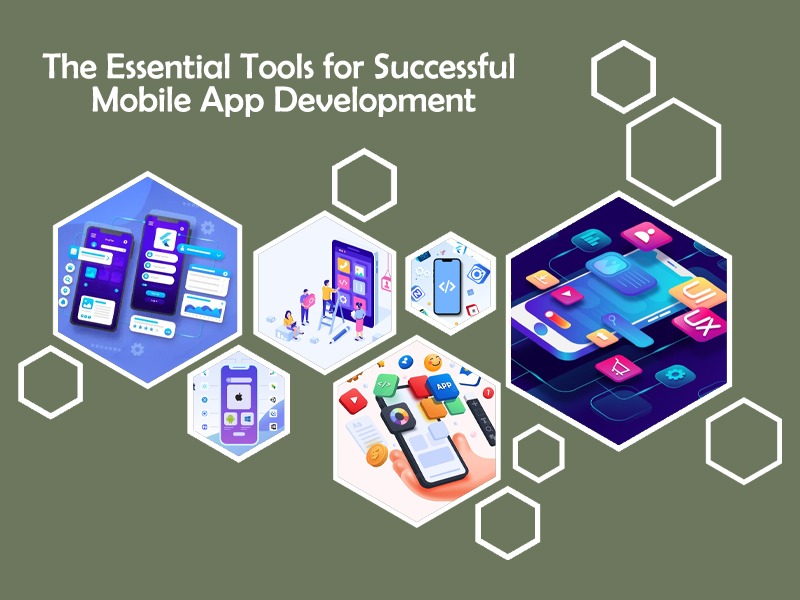Some Essential Tools for Successful Mobile App Development
Businesses have increasingly adopted mobile applications into their business strategies in the past due to the opportunities they represent in terms of the extension of business networks and the ability to engage first-hand with a broad market of clients. While at the same time maintaining and strengthening existing customer relations with other businesses.
They also allow the way to build better relationships with its customers by offering personalized experiences and improved ways of communication for long-lasting bonds with the brand or company. This is because Mobile apps support several Monetization models including in-app purchases and subscriptions, Advertising, and paid versions. Besides that, they help in the enhancement of internal organizational workflow, organizational work efficiency, and reducing organizational costs by supporting options such as inventory and order processing systems and employee interrogation systems.
Such great numbers make many people think about the development of applications for mobile devices. But firstly, it is crucial to comprehend the ways of creating a great app to maximize opportunity.
What is Mobile App Development?
Mobile application commonly known as app is an application software which is developed with a focus on managing resources of mobiles having operating systems like smartphones and tablets. Many of these applications offer specific functions or services to the user, customized for use on the mobile device can be fulfilled by communication and entertainment as well as productivity or social networking apps. Mobile applications may be obtained from app stores through download and installation on devices including the Google Play Store for Android and the Apple Store for iOS devices.
Mobile applications are generally designed by using languages like Java, Swift, or Kotlin depending on the operating system. Some tools enable working on both platforms and frameworks like Flutter or React Native.
Application interfaces are friendly to use. They work efficiently and smartly with device features such as sensors and cameras. They also notify the user and update him/her immediately. They are now in people’s everyday use as they complement how they engage, transact, educate themselves, and even employ.
Platforms in Mobile Applications
Mobile app platforms are the foundation environments that form the development and execution context of mobile apps. Android and IOS are the two most prominent platforms.
Android
Android is an operating system developed by Google and used by devices with different brands like Samsung, Huawei, Xiaomi, etc. It is based on the Java or Kotlin language for application development, and the apps are linked to the Google Play Store.
iOS
Apple has a mobile operating system known as iOS which is installed on iPads and iPhones iOS applications are usually developed using Swift or Objective-C, and they are sold on the Apple App Store only.
There are also hybrid frameworks such as Flutter, react native, and Xamarin since these let a developer write code that applies to both the Android and IOS devices cutting the time and cost. All these give application stores, development kits, and APIs for the development of apps suited to a mobile device and the experience individuals using them are likely to have.
Mobile application Tools
Native Applications
Native apps involve the development of mobile applications that are created to work on particular operating systems such as Android or iOS using the languages that are relevant to the operating systems. Android is usually coded by Java or Kotlin while iOS is normally coded by Swift or Objective C. Native apps are optimized and integrated with the operating system to optimize the hardware features with excellent security and privacy. It gives the full opportunity of the features such as the camera, GPS, and sensors of the device.
Native apps are developed to run on one specific operating system this guarantees them enhanced reliability and responsiveness compared to web-based templates. They are developed to fit into the operating system UI/UI frameworks which will give a better ease of animations, load times, and overall functionality of the site.
Android Studio
Android Studio is the official IDE for Android application development and built by Google. It affords developers a versatile package of services to design, implement, test, and deploy Android applications. Developed from the IntelliJ IDEA, Android Studio includes support for Java, Kotlin, and C++ as programming languages to code with the opportunity to choose the preferred language by the developer.
The IDE consists of a code editor and debugger, and an app emulator through which one can test apps on virtual android devices. With a layout editor, the programming of the graphical user interfaces is made simpler since they can be designed just as a dropping and replacing game. Android Studio also ships with a Gradle-based build system making numerous process-oriented actions such as compilation and resource management much more manageable during application development.
Moreover, Android Studio is built with Android SDKs to open libraries and APIs for devices using features such as cams, GPS, and sensors. Android Studio freshened timely with stable updates and solid community backing continues as a robust IDE for developing optimum Android apps.
iOS app
iOS app development is the process of coming up with an application that will operate on Apple gadgets such as iPhones and iPads using the iOS operating system. App developers often use the integrated development environment (IDE) implemented by Apple, known as Xcode, writing in Swift or Objective-C due to its support by Apple Inc. The IDE complies with numerous tools to design, code, and test iOS applications. The graphical interface to design the appearance of the app, text editor, and application simulator for preview of apps on emulators.
iOS application development enables the developers to take full advantage of powerful elements of Apple environments: availability of native iOS gadget components, such as a camera, GPS, and sensors, services such as Siri, iCloud, and Apple Pay, etc. Yes, the platform is more reliable, protected from external interference as well and user-friendly making it suitable for organizations that intend to market superior business apps.
Flutter
Flutter is an open-source mobile application development framework created by Google to help developers work on Android and iOS, as well as web and desktop applications all at once from a single codebase. Written in Dart language and includes a large library of pre-developed widgets to help create almost perfect UIs and UX for applications.
For app designers, the framework provides full control of the app design and appears to support complex and responsive widgets as well. Furthermore, it works on cross-checking means it supports the same code for different platforms thus saving time and energy.
Flutter enjoys active support from the community, is updated quite often, and seeing the rising popularity among developers, it is an ideal solution for creating apps for multiple platforms.
React Native
React Native is an open-source framework also actively developed by Facebook that enables developers to write mobile applications for both Android and iOS with a single repeated code. It employs the use of JavaScript and React, a JavaScript library with libraries for building user interfaces to develop native-like mobile apps. In contrast with most hybrid frameworks, React Native produces native code that renders application performance almost native.
This framework helps the developers implement clean code that is extensible and modular. React Native is an open-source framework that has an enormous library base and a solid community behind it; it is a good idea for generating a cross-number application that requires high performance and the ability to adjust to specific client needs.
What Development Tool for Mobile Apps Are You Going to Select?
We have been able to share virtually all the details required in deciding on the best mobile app development tool. We believe that through the above discussions, it should be easier to come up with the right selections. If you need assistance from professional developers with building an application that is distinct from the others and is also efficient, then contact our team of developers.
Our Angel Wings tourism agency specializes in developing apps, and we have undergone creating more applications for our clientele. We assist you in finding the most suitable solution to your complicated business requirements.



